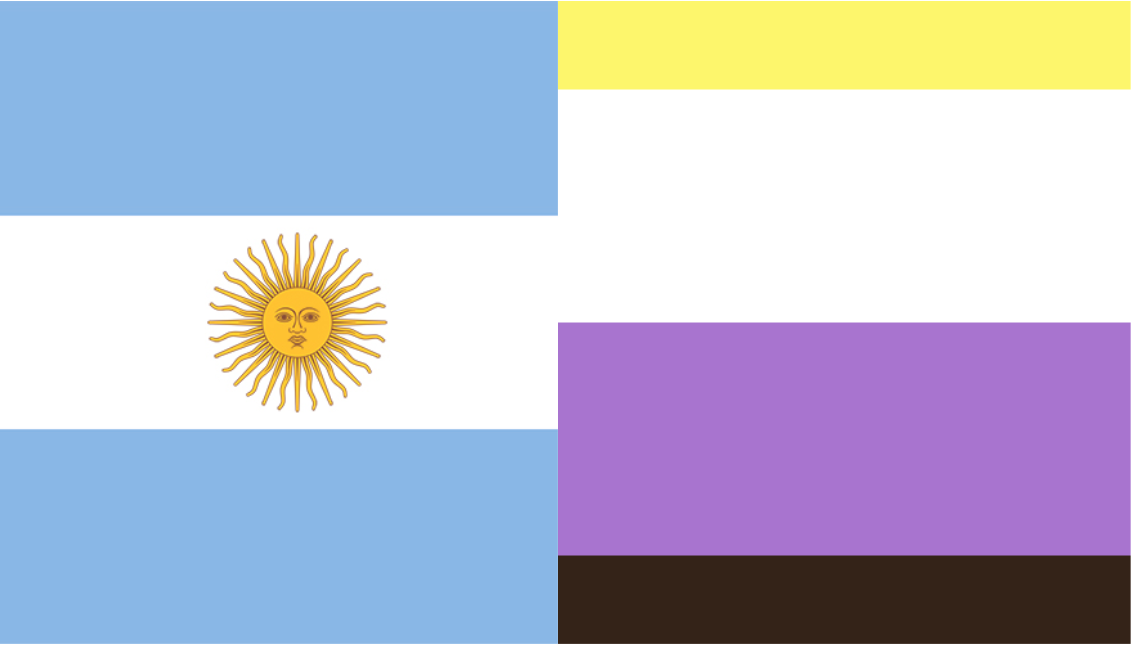
Argentina makes history as first South American country to include ‘x’ gender on official IDs
“There are other identities besides that of man and woman, and they must be respected,” said President Alberto Fernández at an unveiling ceremony for the new…
On Wednesday, July 21, Argentina became the first Latin American country to unveil a new national identity system for people who identify as nonbinary.
Under national law, Argentinians have the right to legally identify as gender neutral, but this hasn’t been reflected in passports and National Documents of Identity (DNI), as residents have only been able to select “male” or “female.”
Now, anyone applying for a new ID document can select “x” for their gender.
Argentina now joins a number of countries who’ve already adopted this system for formal identities, including Canada, Bangladesh, Denmark, Australia, New Zealand, and India.
The U.S. State Department also recently announced a similar passport gender option is in the works.
The State Department is adding a third gender option on U.S. passports for nonbinary, intersex and gender-nonconforming people.
— NPR (@NPR) July 3, 2021
"We don't have to lie to get our passports. We can just be ourselves," said Dana Zzyym, who fought for the change.https://t.co/Ifhm7whSyo
Argentina President Alberto Fernández unveiled the range of ID cards with the new “x” format at a ceremony in Buenos Aires.
Minister of Women, Gender and Diversity Elizabeth Gómez Alcorta, Interior Minister Eduardo De Pedro and Fernández delivered the first three nonbinary documents during the event.
"There are other identities besides that of man and woman, and they must be respected. The ideal will be when all of us are just who we are and no one cares about people's gender,” said Fernández.
The president also said there are multiple ways to love, be loved and be happy, and that the State shouldn’t be concerned with the gender identity or sexual orientation of its citizens.
“We are the first country in Latin America to promote this initiative in order to guarantee the gender identity of people who do not perceive themselves as female or male. We are making possible what seemed impossible,” Fernández wrote in a tweet.
Hay identidades que existieron siempre, pero que se ocultaron. Debemos respetarlas porque cuando las negamos, le quitamos a muchas personas la posibilidad de ser felices.
— Alberto Fernández (@alferdez) July 21, 2021
Espero que este avance termine el día en el que en el DNI a nadie le pregunten con qué género se percibe. pic.twitter.com/Ne13xQSOrW
Alcorta said that the implementation of the nonbinary DNI is a step towards creating a society that is more equal and more inclusive.
RELATED CONTENT
Argentinians can change their current documentation at the headquarters of the National Registry of Persons or at any Civil Registries office. They must bring their birth certificate and current DNI.
Foreigners residing in the country can amend their ID at the National Migration Office.
Argentina’s LGBT Federation (FALGBT) celebrated the news as a “historic advancement” for LGBT rights.
“All identities are valid!” the group wrote on Twitter.
¡Todas las identidades son válidas! y ¡el Estado las reconoce!
— Zona Falgbt (@ZonaFALGBT) July 21, 2021
Sí, así como lo leés A partir de hoy las personas no binarias y que NO se autoperciban dentro del binomio “masculino-femenino” o que no quieran que dicha denominación figure en su documentación pic.twitter.com/g86vzv9l6Q
"Although the use of the 'X' is not completely inclusive in the recognition [of] the wide range of identities that exist, it is an important step on the way toward real equality of rights," FALGBT said in a statement.
In terms of social reforms, Argentina is one of most progressive countries in the region.
In 2010, it passed a law recognizing same-sex marriage. Then in 2012, it passed the Gender Rights Law, which allowed trans people to legally correct their gender without needing a doctor’s note. The legislation also guaranteed the rights to free gender-affirming healthcare, including surgery and hormones.
In June, lawmakers approved a 1% quota of public sector jobs to be reserved for transgender people.











LEAVE A COMMENT: